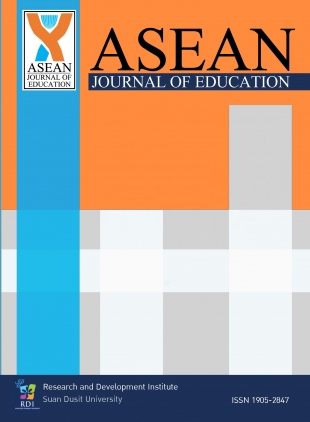Content Knowledge on the Highlights of the K to 12 Curriculum Implementation: Basic for a Proposed Development Plan
Keywords:
Development plan, Competencybased teacher standards, Content knowledge, K to 12 curriculum highlightsAbstract
Teachers as a steward for cognizant transformational change must continuously upgrade their personal growth and professional development. The need to optimize competency-based teacher standards in order to carry out a high performance of their roles and responsibilities as a key to realize the imperatives of the K to 12 curriculum program brings focus in this study. The study assess the content knowledge on the highlights of the K to 12 curriculum implementation of the Technology and Livelihood Education (TLE) teachers of General Emilio Aguinaldo National High School. The study was purposively involved 31 teachers using the descriptive-quantitative research design with the support of the focus group discussion. A validated researcher-made questionnaire with corresponding arbitrary scale and verbal interpretation was used in the study. The findings of the study revealed that only 71 % were able to attend K to 12 seminars/training, 52 % have a Master degree, 3 % have a Ph.D. and 45 % are less than three years in service. It was also revealed that teachers had a satisfactory level of content knowledge on the pre-assessment with a mean of 3.08 or 77 % indicative level of awareness. The in-service training program through capacity building highly improved teacher’s content knowledge with a mean of 3.79 or 94.75 % indicative level of awareness. Thus, the in-service training program that responds to teachers’ competency needs standards was deemed effective in intensifying content knowledge of the TLE teachers of the current development in education. The study suggests to sustain the proposed development plan in initiating seminar, training, and assessment regardless of curriculum reform to further upgrade teacher’s competence.
References
Aquino, B. B. (2015). The K to 12 challenge. Retrieved 2020, 12 April, from: http://www.rappler.com/thoughtsleaders/96459-k-12-challenges
Braza, M. T., & Supapo, S. S. (2014). Effective solutions in the implementation of the K-12 mathematics curriculum. West Visayas State University College of Education, 17, 12-23.
Calderon, J. F., & Gonzales. E. C. (2012). Methods of research: An introduction. Retrieved 2020, 12 April, from: https://www.scribd.com/presentation/333587317/Methodsof-ResearchCalderon-Gonzales
Chang, Y. H. (2005). The pedagogical content knowledge of teacher educators: A case study in a democratic teacher preparation program. (Doctoral dissertation, Ohio University). ProQuest Dissertations and Theses Global.
Cruz, I. (2011). Education reform in the Philippines, 21st century trends, issues, and challenges in Philippine education. Retrieved 2020, 12 April, from: https://isaganicruz.wordpress.com/2009/04/12/educationreform-in-the-philippines/
Durban, J. M., & Catalan, R. D. (2012). Issues and concerns of Philippine education through the years. Asian Journal of Social Sciences & Humanities, 1(2), 61-69.
Lee, Y. C. (2011). Enhancing pedagogical content knowledge in a collaborative school-based professional development program for inquiry-based science teaching. AsiaPacific Forum On Science Learning & Teaching, 12(2), 1-28.
Lucban, E. V. (2017). Status of the implementation of the K to 12 curriculum in the public secondary school of the city schools division of cavite city. International Conference of Basic Education Researchers. Philippine International Convention Center (PICC).
Macalindog, A. T., & Miraña, J. N. (2016). Level of awareness of SINHS teachers on the implementing guidelines to intensify professional growth and development of teachers and personnel in DepEd Calabarzon: Basis for technical assistance. Philippine Conference of Basic Education Researchers. Philippine International Convention Center (PICC).
Nicolas, M. G. (2017). Perspective and challenges of ASEAN integration in education. University of the Philippines Manila. International Conference-Workshop for Teachers Faculty, Educators and school Administrators. Tagaytay City, Philippines.
Osmeña, L. E., Nama, V. N., & Ulpina, J. N. (2016). Status implementation of senior high school basic education program in region IV-A: Basis for the provision of technical assistance. Philippine Conference of Basic Education Researchers. Philippine International Convention Center (PICC).
Pascua, A. M. & Viñegas L. G. (2017). Teachers’ training program in MAPEH of general high school to address students with failing drades. International ConferenceWorkshop for Teachers Faculty, Educators and school Administrators. Tagaytay City, Philippines.
Reyes, R. A. G., & Martin, A. R. (2016). Levels of use and stages of concern of grade 7 teachers in the adoption of the K to 12 curriculum. International SeminarWorkshop for Pre-Service and In-Service Teachers. Baguio City, Philippines.
Riego de Dios, E. E., Olonan, AD, V., Melo, A. L., & Asio, J. M. R. (2016). Philippine association of pre-service teachers incorporated. International Seminar-Workshop for Pre-Service and In-Service Teachers. Baguio City, Philippines.
Sergio, M. R. S. (2012). K-12 education reform: Problems and prospects. Ateneo de Naga University Gibon, 9, 70-80.
Talon, R. B. (2014). Instructional competencies of basic education industrial arts teachers in division of Imus city. Philippine Christian University. Dasmariñas City, Cavite. Torres, L. (2014). Level of competency and competency needs of technology and livelihood education teachers: A basis for development program. Cavite, Philippine: De La Salle University-Dasmariñas.
Vernez, G., Karam, R., & Marshall, J. H. (2012). Implementation of school-based management in Indonesia. Retrieved 2020, 12 April, from: http://www.rand.org/pubs/monographs/MG1229.html
Downloads
Published
How to Cite
Issue
Section
License

This work is licensed under a Creative Commons Attribution-NonCommercial-NoDerivatives 4.0 International License.
1 All articles will undergo a formal peer-review. A panel of experts from within or without the university will examine the article; approval from a minimum of two experts is required for publication. Revisions posed by the experts must be completed by the research prior to publication.
2 Once published in the ASEAN Journal of Education, the article becomes intellectual property of Suan Dusit University. Duplication, in full or part, requires permission from Suan Dusit University.
3 Excluding errors incurred during printing, author(s) are responsible for the content of their articles.






